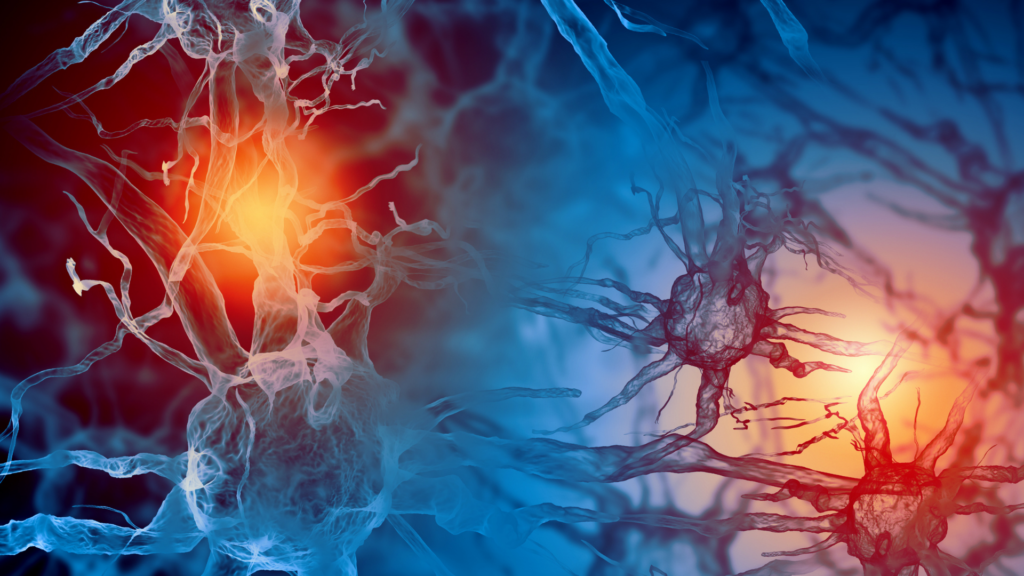Hormone imbalance is common. And it is more prevalent than most people realize. Statistics show that nearly half of all women struggle with hormonal imbalance. And while many people believe that hormone imbalances are a problem for women only, this simply isn’t the case. Both men and women struggle with hormone imbalances. And the issues caused by imbalances can significantly impact the quality of life.

But while many people face the symptoms of unbalanced hormones, it is common for most to go months and even years without seeking medical treatment. Often, the symptoms they face are chalked up to aging. But while many of the symptoms are common, they are not normal.
Most Common Symptoms of Hormone Imbalance
Symptoms in women
- Weight Gain
- Fatigue
- Cravings
- Depression, anxiety
- Irritability, tearful
- Poor sleep
- Belly fat
- Muscle loss
- Low libido
- Brain fog
- poor memory
- Headaches
- Osteoporosis
- Night sweats
- Hot flashes
Symptoms in Men
- Feeling burned out
- Extreme fatigue
- Belly fat
- Decreased strength
- Decreased stamina
- Poor sleep
- Irritability
- Depression
- Decreased urine flow
- Increased urinary urge
- Erectile dysfunction
- Brain fog, decreased clarity
- Low libido
- Night sweats
- Hot flashes
Do you relate to many of these symptoms? Then you may be dealing with a hormone imbalance. And if you do struggle with hormone imbalance you don’t have to be “stuck” with it, and you don’t have to continue to “live with it” either!
What are hormones?

Hormones are the chemical messengers of the body. What messages do they carry? When they are sent out from the endocrine glands, they travel through the bloodstream to various tissues, glands, and organs. They talk to other organs, tissue, and glands to tell them what is happening in a different part of the body. This message then tells the specific organ, gland, or tissue to respond by activating a specific function.
Hormones are responsible for growth, metabolism, reproduction, cognitive function, mood, and body temperature. They play an important role in the functioning of nearly every area of the body. And if an imbalance of hormones happens, it can have a significant impact on a person’s health and well-being.
Hormone producing glands
- Adrenal Gland
- Ovaries
- Pancreas
- Pineal Gland
- Pituitary Gland
- Testes
- Thymus
- Thyroid
The amount of hormone needed for communication is very small. The slightest deviation in the amount of the hormone, whether in excess or deficiency, can highly influence how the work is done in the body as well as if it is even performed at all.
What causes hormone imbalance?
Living in the modern world presents many challenges when it comes to our hormones. Stress plays a large part in causing an imbalance in all our systems, including our hormones. And that stress can be mental, emotional, or physical (such as injury or disease). But our diet, lifestyle, and environment all play a large role also.

The cells have receptors that are like locks. And hormones are like the keys that fit into those receptor locks. These “keys” turn certain functions of a particular cell on or off. There are many man-made substances that mimic our natural hormones. When we are exposed to these chemicals, they can activate or deactivate cell capabilities that otherwise would not have been activated or deactivated.
These substances are known as endocrine disruptors. And they can be found in certain foods, such as soy, common everyday household cleaners, personal care products, and medications. They are even found in our water. Endocrine disruptors are contributing to hormonal imbalance at an alarming rate. And yet, they are still being deemed as “safe” and therefore used in a host of products that people use every day.
Disease
Many people have an under or overactive thyroid or insulin resistance. When it comes to these common health issues remember that it is the hormone’s ability or inability to deliver their messages that are the true problem. Many times, the gland itself is functioning properly. But the hormone is not able to connect to deliver the message. Insulin resistance is a good example. When the blood sugar elevates it is up to insulin to come out and escort glucose to the proper places. In insulin resistance, the cells are tired of hearing from insulin, as it is circulating quite frequently in the body. So, they become resistant to insulin. Is the insulin not functioning properly? No, it is ready and able to do its job, but it is not able to complete the delivery.
A different solution
There are a lot of people struggling with the symptoms of hormone imbalance. But there are ways to bring those hormones and glands back into balance and restore proper function. At FDNthrive, our functional health coaches don’t assume anything when it comes to what’s going on in your body. We know that by testing, we gain insight into dysfunction and use solid health principles to bring a balanced state back to the body. Using functional laboratory testing allows you to stop guessing and clarify if a hormone imbalance is really contributing to your health issues.
Hormone imbalance impacts so many different areas. Testing helps us to figure out if hormones are high or low and give us clues into what is affecting their imbalance.
If you are interested in learning more follow us for more information. And if you would like to work with us, find out if we are the right match for you.
